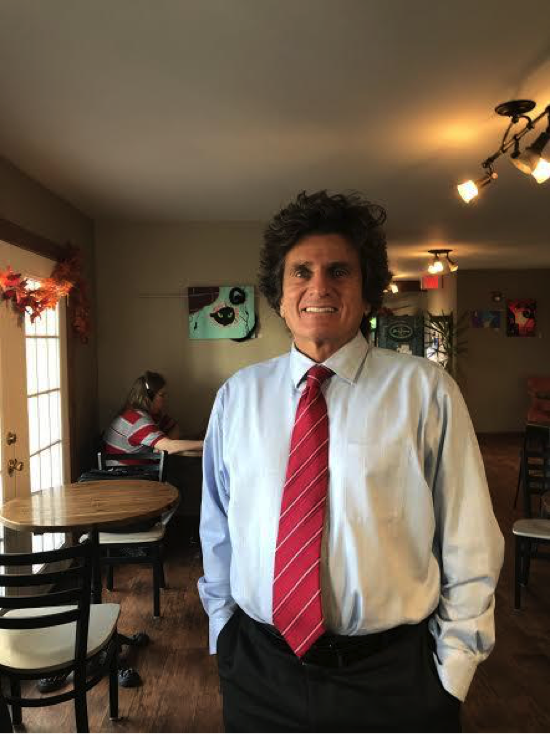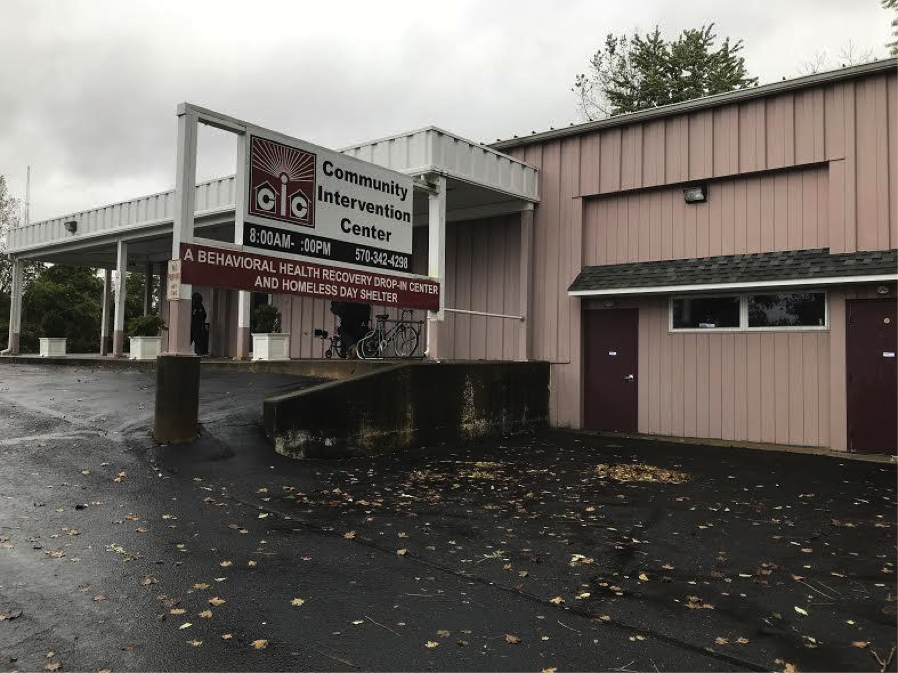Friendship House, a Scranton-based children’s behavioral health care clinic was awarded the contract to serve as the region’s designated public behavioral health care provider after a national firm pulls out.

On September 26th, Alex Hazzouri, President and CEO of Friendship House, a Scranton-based provider of behavioral health care primarily for children, learned that his organization would take over as the designated provider for public behavioral health services for 1,500 people in northeastern Pennsylvania, starting November 1.
The takeover followed an announcement in August that Merakey, a national provider of behavioral and mental healthcare, would close the two clinics in the region that previously served in this capacity, by the end of October.
Kevin Feeley, a spokesperson for Merakey, said that low insurance reimbursement rates made continuing operations unviable. Hazzouri is confident negotiations over provider reimbursements will not be a concern for Friendship House, but said a tight launch schedule creates its own issues.
Servicing a vulnerable population, in counties where, according to the Northeast Behavioral Health Care Consortium (NBHCC,) approximately 1 in 5 people suffer from behavioral health issues in a given year, leaves little room for error. The consequences of a lack of treatment or a lapse in treatment can lead to institutionalization, jail, homelessness, or suicide for a number of people that rely on these support networks, said James Moore of the Community Intervention Center, a free behavioral health clinic, in Scranton, that works primarily with the homeless.
An employee of Merakey, who witnessed the pace of the transition, alleges that patients were lost in the resulting confusion. Merakey served children and adults living below the state poverty line, with mental or behavioral health problems. The company provided treatments for issues like drug and alcohol addiction, schizophrenia, and mood disorders, as well as early intervention for children who have been victims, or are at a high risk, of abuse or neglect. The individual spoke on the condition of anonymity out of fear of losing their job.
According to the employee, Friendship House doesn’t know where many of Merakey’s former clients have gone, since patients and their families were initially told to look for health services elsewhere. The source also alleges that Friendship House is unsure about which doctors or prescribers will stay on, and that the organization doesn’t have a telephone number for people to call to find out what will happen to their services.
Hazzouri denies the allegations. “I can say with absolute confidence Friendship House has all the necessary information to reach out to former patients,” he said. “We have been working closely with Merakey and Community Care Behavioral Health, so our folks are ready to hit the ground running, come November 1,” Hazzouri said, referring to the insurance agency that provided coverage for Merakey.
Last week, Merakey provided a list of about 40 high-risk patients to Friendship House, said Jim Martin, COO of Friendship House. These patients have trouble functioning in a community, and many are receiving injectable psychotropic medications. “We are working on transitioning these clients before the November 1 deadline,” he said.

Hazzouri also said, that Friendship House is working on other ways to recapture former Merakey clientele. The company began sending messages out “through the post, email, and over the phone,” he said.
However, the source said, finding the missing clients is difficult, because Merakey did not use an electronic filing system to keep patient information. In the rush to store patients’ charts in a warehouse, before the clinic closes on Thursday, the files were disorganized, the source alleged. Merakey is required, under the Health Insurance Portability and Accountability Act, to hold patient documents for ten years.
Todd Loeb, communications director for Merakey, said he believes patients have already transitioned to Friendship House, Children’s Service Center, and Devereux, among many other organizations. “Ultimately, consumers have a choice as to where they want to receive their services,” he said.
Jeremy Yale, treasurer for Northeast Behavioral Health Care Consortium, an agency responsible for managing the federal funds awarded to northeastern Pennsylvania by the Department of Human Services, to provide medical, psychiatric and substance abuse support, agreed with Loeb. Yale works closely with HealthChoices, the Pennsylvania equivalent to Medicaid, and said that a foundational principle of this system is the patient’s ability to choose who they want to get receive treatment from.
Yale also serves as an administer for the Lackawanna-Susquehanna Behavioral Health, Intellectual Disabilities, and Early Intervention Program (LSBHIDEI), the agency responsible for drafting and sending out the questionnaire used to determine which company would replace Merakey. The agency sent out around 200 requests for information, just two business days after Merakey’s announcement, and received just eleven replies. During this process, Yale said, the agency skipped over bureaucratic hurdles, such as the formal request for proposals, because there wasn’t enough time to follow formal protocol.
The Consortium selected Friendship House because they demonstrated the ability to administer high quality healthcare and manage the licensing processes. Equally important, they had a significant cash reserve which would allow them to underwrite some of the operational costs up front.

That was not the case four years ago, when Hazzouri joined the beleaguered company, it was running at a $1.4 million dollar deficit. Along with the management team, Hazzouri took the 147 year-old nonprofit, originally called The Home for the Friendless, to profitability. Hazzouri said that whatever revenue remains after expenses are paid is immediately reinvested in the company. As a result, Friendship House became the premier provider of behavioral healthcare for children in the Scranton area.
Because of the takeover, Friendship House now faces the challenges of scaling up its operations in a big way. This includes hiring and training fifty new case managers, therapists, nurses, and administrators; finalizing a lease on a new operations center; and “buying everything from medical equipment, to furniture, to mops;” Hazzouri explained.
The organization also plans to add physical health services to the new space, which Hazzouri said is “huge step forward, and something entirely new for upper Lackawanna County.” Physical and behavioral health issues often overlap, he said, and having services under one roof will save individuals time and money from having to go to multiple locations to see their doctors.
Despite the expansion within the organization, Friendship House plans on scaling back the volume of services previously offered by Merakey, said Hazzouri. This is partly in response to the funding cuts enacted by President Trump, outlined in the Department of Health Services’ Justification of Estimates for Appropriations Committees report, which shows a decrease of nearly $400 million in federal funds earmarked for substance abuse and mental health services, across the nation. For Pennsylvania, the Community Mental Health Services Block Grant fell to $13.8 million in 2018, from $17.7 million in 2017.
Another factor that will force Friendship House to limit its services is the “pay for results” method of insurance reimbursements. Typically, a health practitioner would bill a patient per hour, and would then be reimbursed at a negotiated rate for the time, said Santina Williams, a program director at Merakey. However, under pay for results, which was instituted in Pennsylvania in 2006, an insurance company determines a fixed rate to pay based on a specific service. As a result, a practitioner is only paid if they meet a rigid standard of quality assurance. “This system is more stressful, but you get better results,” said Williams.
To be sure, every service required by the state will still be available. Most of the cuts will be in oversight, administration, and management costs, said COO Martin. Though the mandate to service the public remains the same, Martin said, the existing structure had to change.
Despite the obstacles ahead, Yale said, “Given the time frame, this is just short of a miracle.”
Email the Author, Daniel Kuhn at dk3615@nyu.edu